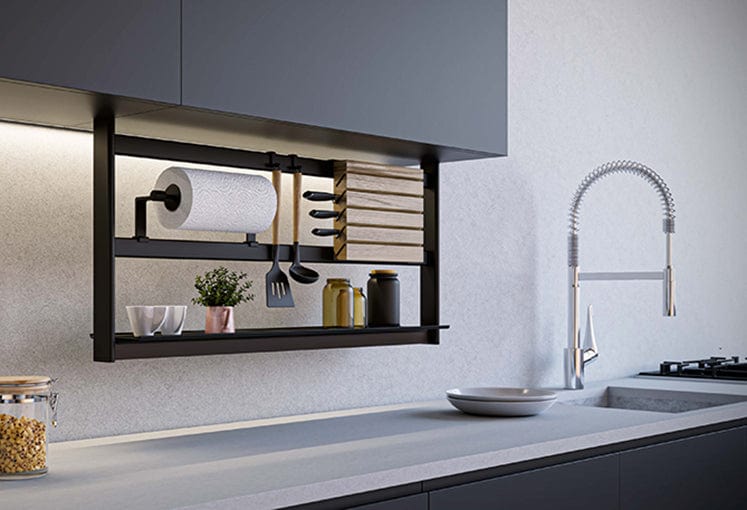Sustainability
Responsible Design
Sustainability cannot be dismissed as just a passing trend, because it raises a very real and serious issue that no manufacturing activity can ignore. Damiano Latini has chosen to adopt a responsible approach starting from the design phase, setting three key objectives in the development of each new product.Aesthetics.
The company collaborates with young and talented designers who bring fresh ideas and original perspectives—essential ingredients for creating innovative products that can stand the test of time and outlast passing trends. Timeless products have a lower environmental impact compared to disposable ones.
Durability.
90% of Damiano Latini’s bookcases and under-cabinet systems are made exclusively of aluminum, a material known for its high durability. The Super Chair is the exception that proves the rule—made entirely from 100% recycled and recyclable polypropylene, it still maintains the high resistance typical of polymers.
The ability to create long-lasting products is essential to extending their lifecycle and reducing the environmental impact of production. We use aluminum almost exclusively as our raw material—a lightweight, long-lasting, and recyclable material.
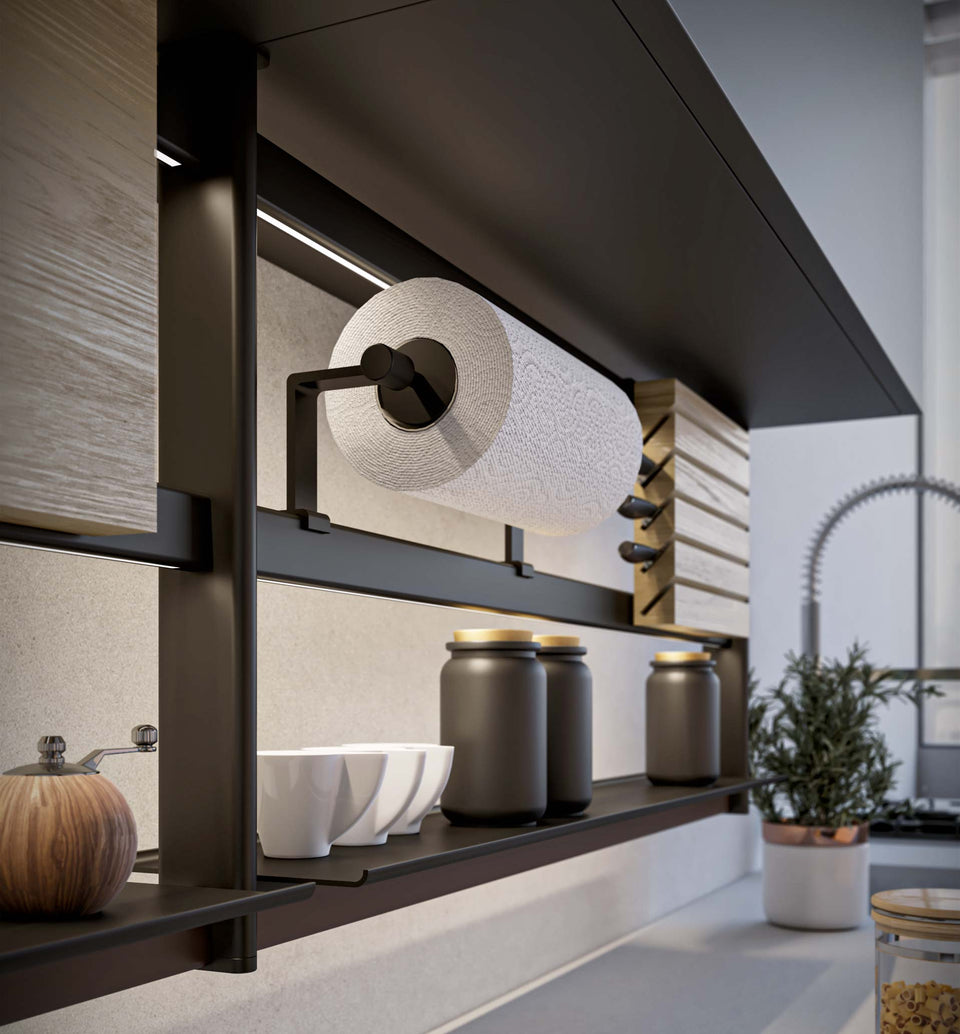
Ethical Design.
Since the very beginning, Damiano Latini has embraced a responsible approach to design, creating products that use only interlocking parts and mechanical joints, without relying on adhesives or welding between different materials. The Giostra divider is the first example of green design developed in accordance with DFD (Design for Disassembly) principles—an essential feature that allows these products to be easily reintroduced into the recycling chain at the end of their lifecycle.
During the engineering phase, led by our R&D department, priority is always given to optimizing materials and the individual components of a product, while maintaining modular systems. This minimizes raw material waste during production and processing. With fewer components, production becomes more efficient, with less resource waste, and recycling or reusing the product at the end of its life becomes simpler.
Finally, the ability to disassemble furniture and under-cabinet systems is a key factor in product sustainability, as it allows for separate recycling of each component and reduces shipment volumes, saving space and fuel. A clear example of these best practices is the Hang under-cabinet system, made of aluminum, assembled only with interlocking systems, and produced with profile extrusion processes that avoid excess and minimize waste (which is in any case recycled and reintroduced into production). Lastly, the Hang structure is fully disassemblable, allowing for more compact packaging and more efficient logistics and shipping management.
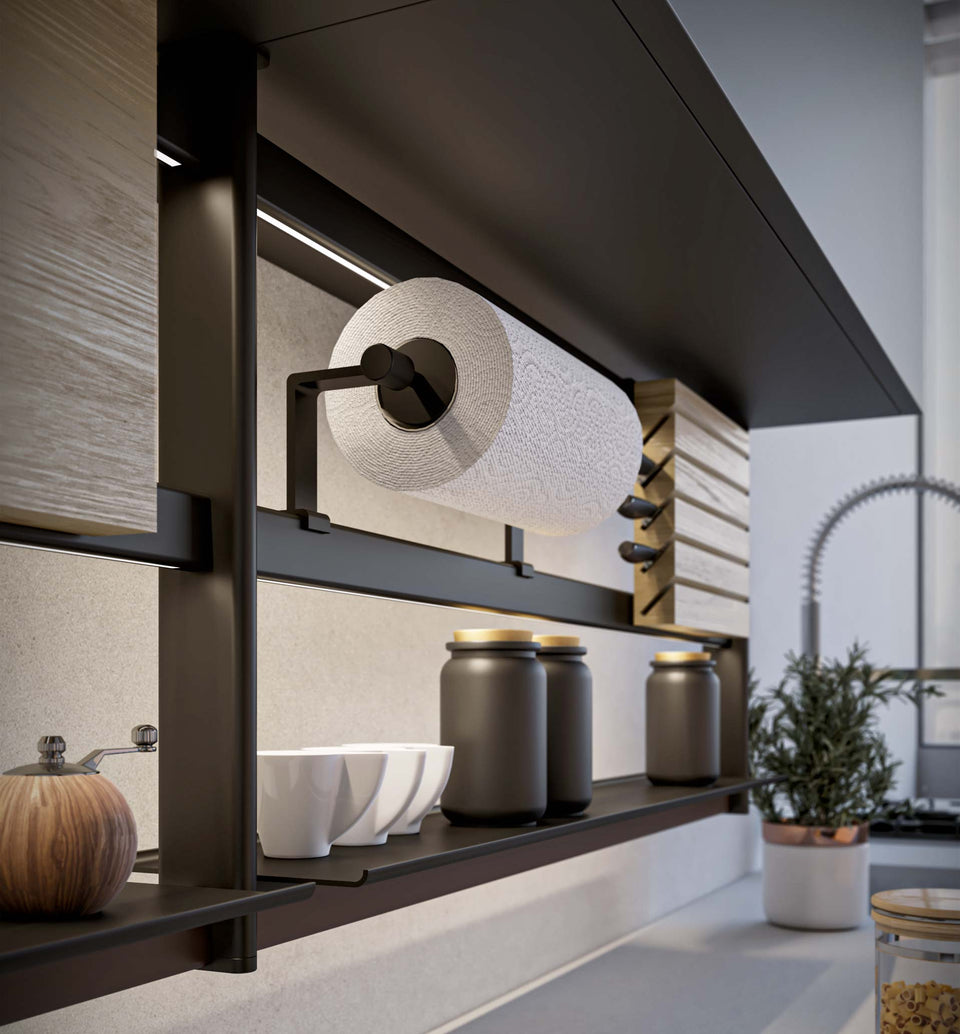
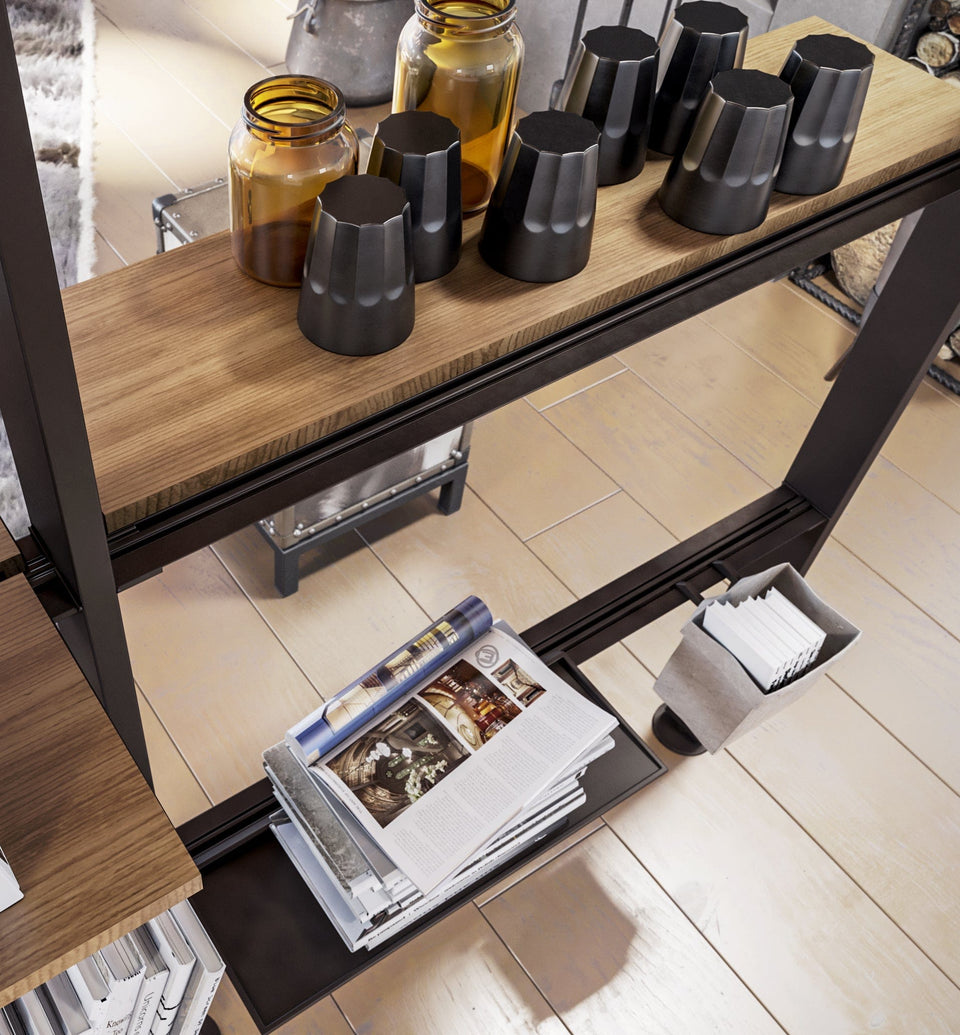
Sustainable Production
Sustainability also involves the choice of raw materials and suppliers. Damiano Latini uses almost exclusively aluminum, which is an integral part of about 90% of its products. Aluminum is a lightweight, durable, and recyclable material—qualities that make it highly sustainable. Its lightness positively impacts the environmental footprint of transportation, while its durability and recyclability enhance the product’s lifecycle. Aluminum lasts longer over time and, once the product reaches the end of its life, it can be fully recycled and reintroduced into the circular economy. The selection of suppliers who themselves demonstrate a commitment to environmentally responsible practices is an essential part of Damiano Latini’s responsible design philosophy. It's no coincidence that the Super Chair is made of 100% recycled polypropylene, supplied by an Italian company recognized for its excellence in injection molding technology and for patenting a process that transforms post-industrial waste into raw material. This is a clear example of how it’s possible to produce a fully sustainable object without compromising on aesthetic or functional quality. All suppliers of wooden accessories and cardboard boxes for packaging must be FSC certified by the Forest Stewardship Council. To reduce transport and emissions, we’ve chosen to work with local suppliers, and currently, 75% of our partners are located within the Marche region. With a continuous improvement mindset in the area of environmental sustainability, the company is gradually reducing its environmental footprint by internalizing the production and processing of semi-finished products. This process began in 2022 with the purchase of two Industry 4.0 digital machines, followed by the addition of a third machine in 2023. This transformation allows the company to significantly reduce the transportation of materials to and from suppliers, while also optimizing production and minimizing waste.Sustainable Production
Sustainability also depends on the choice of raw materials and suppliers. Damiano Latini uses almost exclusively aluminum, which is an essential component in around 90% of its products. Aluminum is lightweight, long-lasting, and recyclable—qualities that make it a highly sustainable material. Its lightness has a positive impact on transport-related emissions, while its durability and recyclability enhance the product lifecycle. Aluminum lasts longer over time, and once the product reaches the end of its life, it can be fully recycled, contributing to the circular economy. The selection of suppliers who are equally committed to environmentally friendly practices is a key part of Damiano Latini’s responsible design approach. It’s no coincidence that the Super Chair is made of 100% recycled polypropylene, supplied by an Italian company recognized for its excellence in injection molding technology and for patenting a process that transforms post-industrial waste into raw material. This is a clear example of how it’s possible to create a fully sustainable product without compromising on aesthetic or functional quality.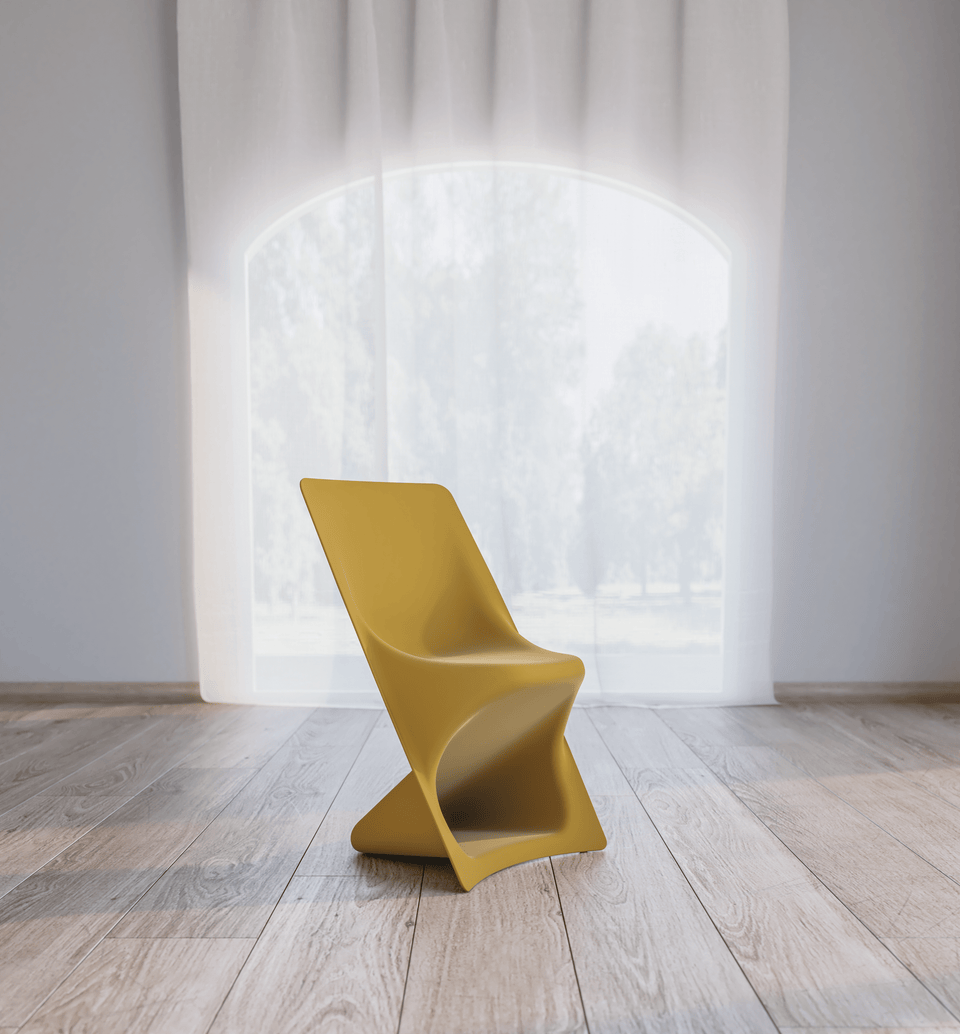
In order to reduce transportation and emissions, we have chosen to establish collaborations with local suppliers. Currently, 75% of our partners are located within the Marche region.
With the goal of continuous improvement in environmental sustainability, the company is gradually reducing its environmental footprint by internalizing the production and processing of semi-finished products. This process began in 2022 with the purchase of two Industry 4.0 digital machines and was further expanded in 2023 with the addition of a third machine. This transformation allows the company to drastically reduce the movement of materials to and from suppliers, while also optimizing production and minimizing waste.

